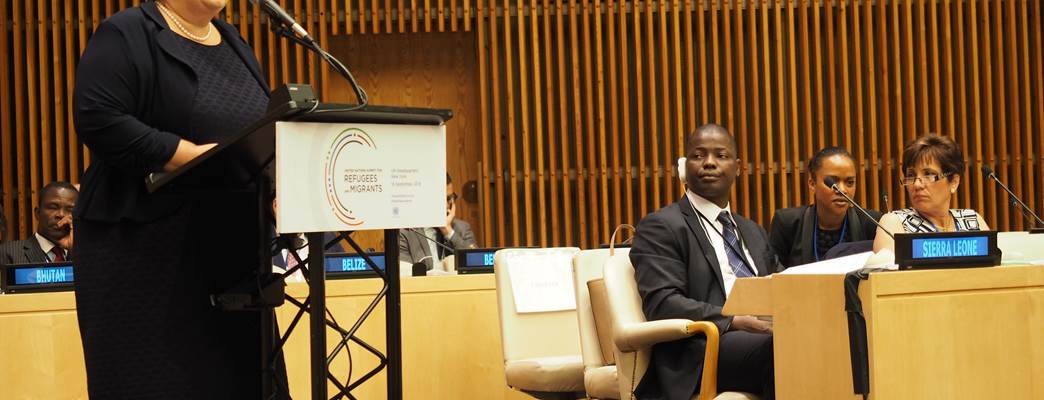Excellences, Ladies and Gentlemen,
The refugee crisis is a global challenge, and time has come for a global approach. That is why the process we start here today must lead to global compacts for refugees and for safe, orderly and regular migration – by 2018.
This is what a compact is about - a complete set of long-term and short-term measures, on global, national and individual levels – addressing root causes and consequences alike.
People leave their homes for many reasons: Conflict and war leads to major refugee flows and internally displaced populations. Lack of freedom and lack of respect for human rights have caused insecurity and put a brake on growth and job-creation. Ethnic and religious differences have been exaggerated and exploited.
Democratic societies are not perfect, but because disagreement is tolerated, they have an ability to learn from mistakes and improve themselves –and to create security and prosperity.
We can all do more to resolve conflicts and foster development, but we will only succeed if the governments in question take the main responsibility.
***
This year, the UN and the Red Cross have issued their largest humanitarian appeals ever. Humanitarian needs have exploded. Unfortunately, the global response has not. Norway has increased its humanitarian budget by more than 25 percent.
We must also use our available resources in a more efficient way – by reconsidering our financing mechanisms and ensure better coordination. And we must step up our efforts to prevent conflict.
As co-chair of the Secretary-General’s Sustainable Development Goals Advocacy Group, I will do my part – addressing the root causes of poverty, conflict, violent extremism, refugee crises, youth unemployment, forced migration and global warming.
Worldwide, 37 million children and adolescents are out of school because of crises and conflicts. If young people are to be the future architects of peace and stability, they must get access to education.
We have made education a top priority in Norway’s development policy, and we have initiated the Global Commission on Financing of Education Opportunities.
I received its final report on Sunday – its recommendations are highly relevant also in this context. Many governments must do more for education – not least of girls.
UN Security Council Resolution 1325 on women, peace and security was a milestone when adopted 16 years ago – and it remains crucial for building resilience, protecting civilians and creating and sustaining peace.
Not everybody on the move are escaping conflict. If we cooperate closer and better on the return of nationals who do not qualify for asylum, we can focus our attention on those in genuine need of protection. We must also coordinate our efforts to combat the criminal networks that are running the illegal refugee and migrant business.
Successful integration is challenging, but many of us around this table have experienced how refugees can enrich and strengthen the societies they become part of.
Ladies and gentlemen,
We are faced with an unpredictable world – and with multiple crises.
As we embark upon our common endeavour to resolve conflict and foster development, let us be inspired by some of the positive developments we see:
- Since 1990, the share of those living in extreme poverty has been cut in half.
- Colombia is about to see an end to conflict after more than 50 years.
- Exactly one year ago, the leaders of the world agreed on ambitious goals to create sustainable development and eradicate extreme poverty by 2030.
- And last year we agreed in Paris on an ambitious climate agreement.
This proves that results can be achieved through diplomacy – and that we are able to lift together.
Thank you.
